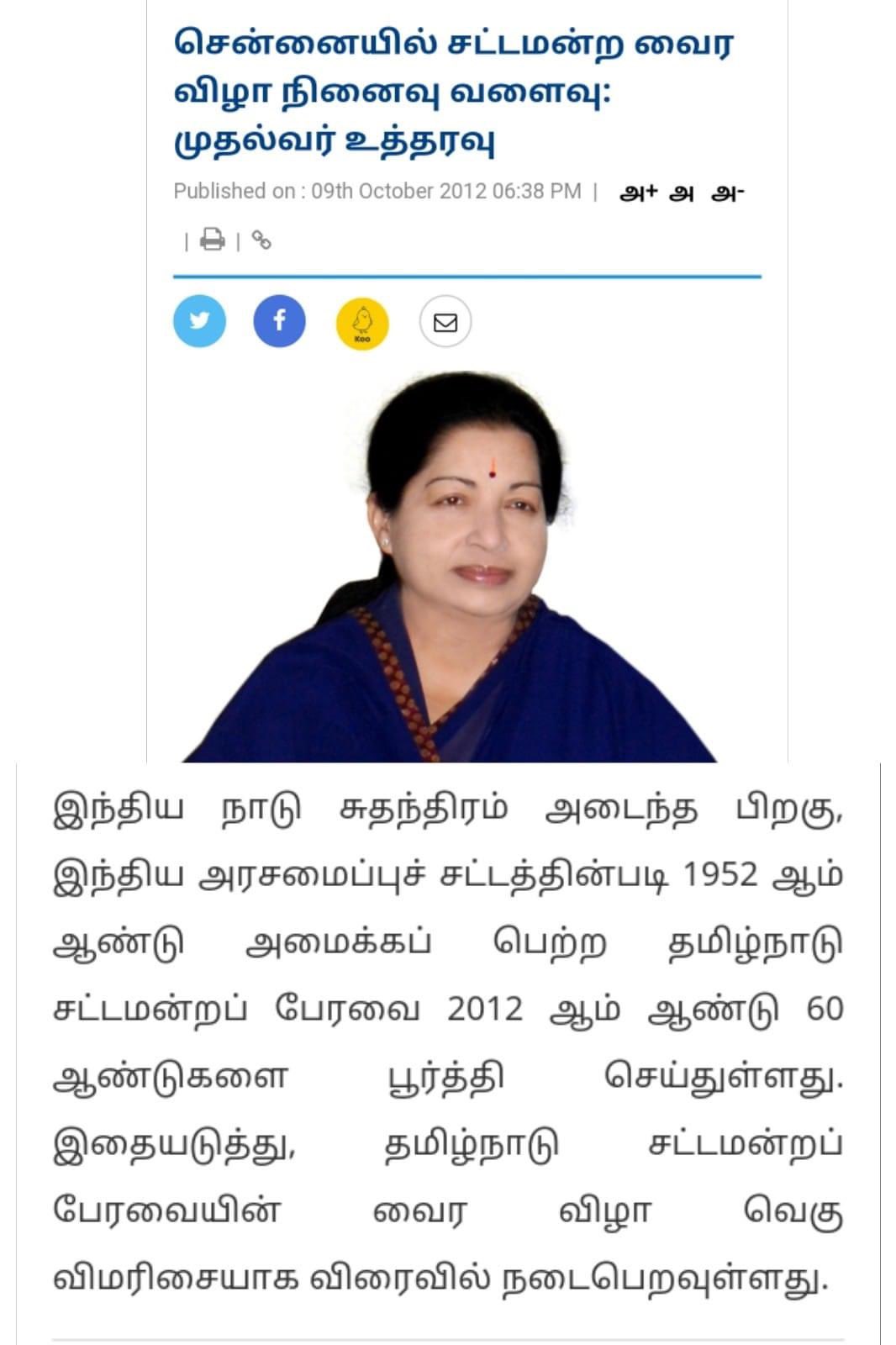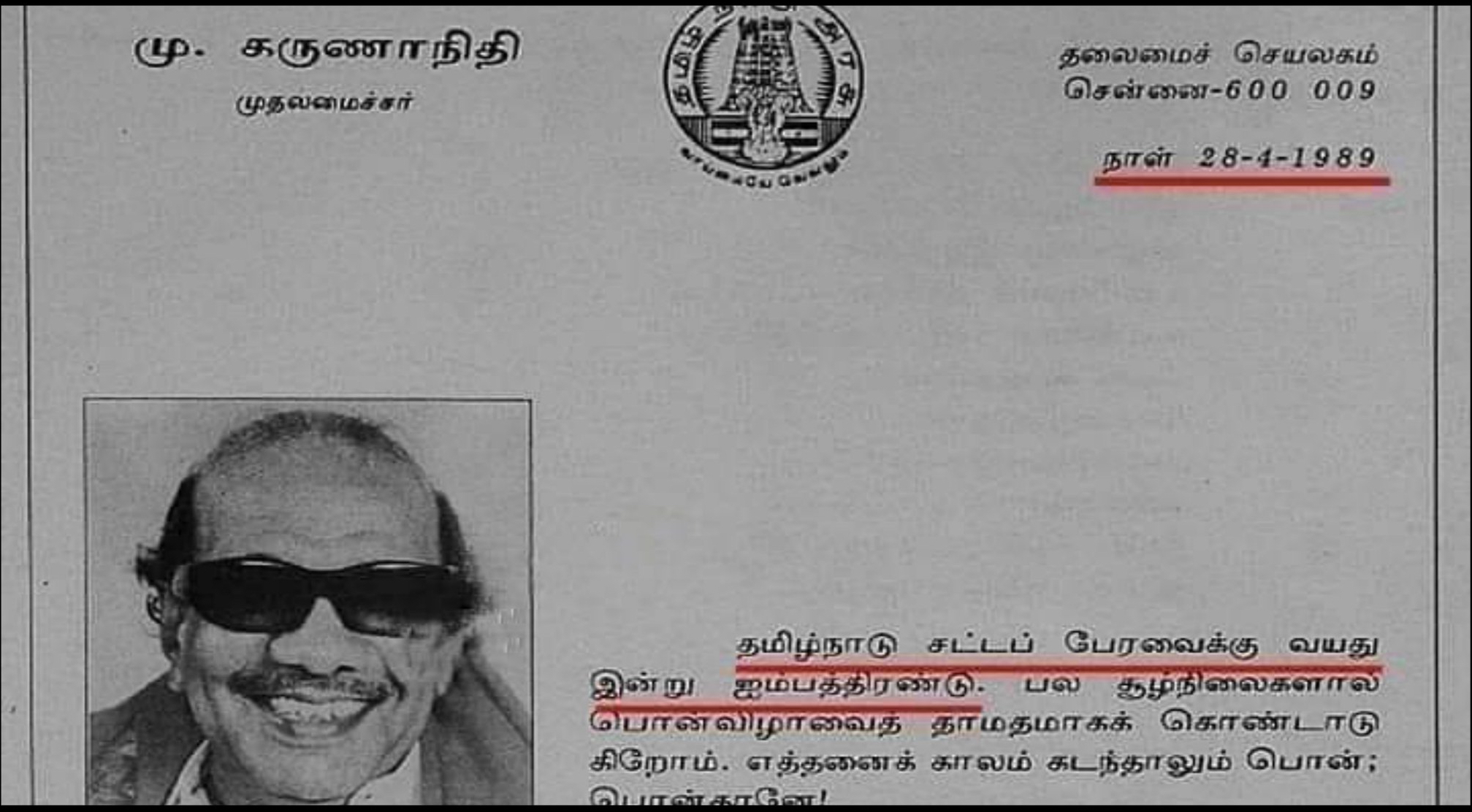President Ram Nath Kovind is on a five-day visit to Tamil Nadu from August 2 to 6. On August 2, the Hon’ble President attended the 100th year of the Tamil Nadu Legislature in Chennai and unveil a portrait of former Chief Minister M Karunanidhi. However, there was disagreement in the selection of the reference date for calculating the 100th anniversary, with many claiming that the President should not attend the centenary function in the year 2021 since it is morally wrong. The facts that support this viewpoint are presented here.
The Montagu–Chelmsford Reforms or more briefly known as the Mont–Ford Reforms, were introduced ostensibly by the colonial government to introduce self-governing institutions gradually in British India. However, it did not satisfy the political demands in India.
Freedom fighters like Balagangadhar Tilak, Gandhi, and others refused to accept the British-imposed Montague Chelmsford Reform and protested across the country. British, in order to quell the protest, brought out the draconian Rowlatt Act that was passed in March 1919 by the Imperial Legislative Council which gave them the power to arrest any person without any trial.
People demonstrated across the country in opposition to this draconian rule. Several political leaders were detained across the country.
In one such protest in Amritsar, the Jallianwala Bagh massacre, also known as the Amritsar massacre, took place on 13 April 1919. A large but peaceful crowd had gathered at the Jallianwala Bagh in Amritsar, Punjab to protest against the arrest of pro-Indian independence leaders Dr. Saifuddin Kitchlu and Dr. Satya Pal. In response to the public gathering, the British Brigadier-General R. E. H. Dyer surrounded the Bagh with soldiers. The Jallianwala Bagh could only be exited on one side, as its other three sides were enclosed by buildings. After blocking the exit with his troops, he ordered them to shoot at the crowd, continuing to fire even as protestors tried to flee. The troops kept on firing until their ammunition was exhausted. At least 1000 people were killed and over 1,200 other people were injured of whom 192 were seriously injured.
The crimes committed by General Dyer and his forces were condemned by the whole country of India, as well as world leaders. Gandhi started the “Non-Cooperation” movement, denouncing the power-sharing under the Chelmsford reform, which he saw as alms, and condemned the Jallianwala Bagh killing. The entire nation was mourning, except the Justice Party, the predecessor to today’s DMK.
The Montagu Chelmsford reforms of 1920 which introduced direct elections to the Imperial Legislative Council and the Provincial Councils saw the Congress boycotting the elections while the Justice Party contested. Only 12.5 lakh people with land, wealth, and education were given the right to vote out of Madras province’s 4 crore population, which cannot be termed the province’s collective conscience.
Furthermore, there is no information on the distribution of backward class and scheduled caste electors, as well as women’s representation in the 12.5 lakh voters. The Justice Party ran in this election, which was not participated by Congress because it demanded self-rule. Despite the fact that communal and class electorates were provided in this election, the Dalit leaders were just nominated members of the legislative council and not chosen directly.
Affluent, land-owning, influential castes like Naidu, Reddy, Nair, Chettiar, and others dominated the Justice Party. The social justice espoused by Justice Party was nothing but social justice for the wealthy and landed aristocrats. They were anti-Brahmins and advocated caste upliftment, but exclusively for their caste.
From 1923, the Swarajya Party, founded by C R Das and Motilal Nehru, began participating in council elections. The party led by Sathyamoorthy defeated the Justice party, but they declined to form a government because they opposed Montagu Chelmsford’s dual government reforms.
Congress agreed to participate in elections only after greater powers were devolved to provinces under the Government of India Act 1935. The Swarajya Party merged with the Congress in 1935. Congress under Rajaji won the Madras province elections in 1937. The Congress, which came into power in 1937, ruled until 1967.
Now that the question of whether this is the correct year to commemorate the 100th anniversary of the Tamil Nadu legislative assembly has been raised. In fact, all the parties had a chance to contest the 1920 Madras Presidency Legislative Council election. All parties, with the exception of the Justice Party, had agreed to boycott the election in protest of Montagu Chelmsford’s proposed dual system of administration. Congress and other parties participated in elections only when greater autonomy was granted in the Government of India Act 1935, after which the Justice Party was decimated.
In fact, if Congress had any self-respect left, it should have boycotted the 100th-anniversary celebration of the Tamil Nadu Legislative Assembly, which it did not. They were the ones who called for a boycott of the legislative assembly elections in 1920. But that’s asking too much of it right now. Now that the President had agreed to grace the occasion of the 100th anniversary because there is no legal restraint, there is a moral issue with him attending the event.
The Justice Party, who were always British stooges, backed an act that resulted in the Jallianwallah Bagh massacre. To quell the protests that followed after the 1919 Act, the British enacted the Rowlatt Act, which was followed by the Jallianwallah Bagh massacre.
Also, the Justice Party supported the Simon Commission (1927), which had all White members and no Indians to decide on the destiny of Indians, despite the fact that it was opposed by Indians all over India. Only after this incident, we lost Bhagat Singh-Rajguru-Sukhdev to British Imperialists after they killed the police officer who was responsible for the lathi charge and killing of Lala Lajpat Rai who was protesting the Simon Commission.
The 100th year anniversary is calculated from the year Justice Party, which had supported the imperialist British government, its white supremacy, and all its atrocities in India, formed government. Is it appropriate for the President of an independent India to attend the event?
Also, it is to be noted that the late former CM Jayalalithaa celebrated 60th year of Tamil Nadu Assembly in 2012 taking 1952 as the base year since it was the year first elections happened in Tamil Nadu after India’s Independence.
The DMK patriarch when he was CM celebrated 52nd year of Tamil Nadu Assembly in 1989 taking 1937 as base year.
Now, CM Stalin is celebrating the 100th year of Tamil Nadu Assembly taking 1921 as the base year. Three different CMs, three different base anniversaries.
In truth, the reference date should be 1952, when all parties participated in the election and there was universal franchise, rather than 1921, when only the Justice Party contested elections and only Brahmin-hatred spewing wealthy aristocrats voted. There is nothing wrong with the President attending a function to unveil a portrait of former Tamil Nadu Chief Minister M Karunanidhi, but it is morally wrong to participate in the Tamil Nadu Assembly’s centennial celebrations.
Click here to subscribe to The Commune on Telegram and get the best stories of the day delivered to you personally.

